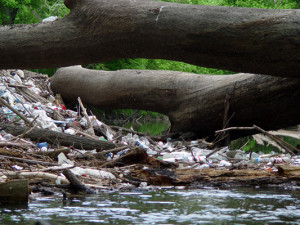
The Clean Water Cooperative Federalism Act, a bill that would severely limit the authority of the federal Environmental Protection Agency (EPA), was approved by the House of Representatives in a 239 to 184 vote on July 13.
The bill, or H.R. 2018, came on to the House floor on June 22 after it was hastily passed through its sponsor, the Transportation and Infrastructure Committee.
H.R. 2018 must still be approved by the Senate before it can be put in front of the President.
In response to the House’s approval of the bill, the House of Representative’s Transportation and Infrastructure Committee sent out a press release on the decision.
“I am pleased that H.R. 2018 has passed the House this evening,” said John L. Mica (R-FL), chairman of the committee and main sponsor of the bill. “EPA’s recent unprecedented actions have created a regulatory nightmare that affects almost every state in the union, potentially jeopardizing more than $220 billion worth of economic activity subject to the Clean Water Act Section 404 permits.
“This is a regulatory power grab creating a potential nightmare leaving projects on hold that not only have an environmental impact, but also an economic impact in the United States at a very difficult time for our economy,” Chairman Mica continued.
Rep. Bob Gibbs (R-OH), chairman of the Water Resources Subcommittee, added “H.R. 2018 was introduced to clarify and restore the long standing balance that has existed between the states and the EPA as co-regulators of the Clean Water Act. It reins in EPA from imposing one-size-fits-all regulations on the states, and I am pleased that the House has approved this important legislation.”
The overwhelming response to the bill, however, has been negative.
The day before the bill was passed, the Obama Administration sent out a statement that it “strongly opposes H.R. 2018” due to its potentially negative effect on public health, the economy, and the environment.
“Since the enactment of the CWA in 1972, the Federal Government has protected the waterways our citizens depend on by using its checks and balances authority,” said the statement. “H.R. 2018 would roll back the key provisions of the CWA that have been the underpinning of 40 years of progress in making the Nation’s waters fishable, swimmable, and drinkable.”
The statement ends with a recommendation from the Presidents’ senior advisors for Obama to veto the bill if passed by the Senate.
The movement of the bill attracted the attention of a great number of environmental organizations, including the Sierra Club and the National Resource Defense Center (NRDC).
“Today’s unprecedented attack on clean water protections is an assault on Americans’ health, environment and economy – and further exposes a House of Representatives that no longer represents the interests or the values of the American people,” said Sierra Club executive director Michael Brune.
“Now is not the time to roll back essential clean water protections or prevent the Environmental Protection Agency from protecting Americans’ drinking water,” continued Brune.
“The House has unleashed the single-worst assault on clean water protections in a generation—part of a broader, ill-conceived attack on our air, lands, water and wildlife,” said Steve Fleischli, senior attorney for NRDC.
Both the Sierra Club and the NRDC applauded the Obama Administration’s response to the bill.
The bill, according to its sponsors, was intended to increase the efficiency and effectiveness of water quality standards by increasing the authority of each state.
Some entities, such as the West Virginia Coal Association, felt that the federal Environmental Protection Agency took advantage of its power and needed to be contained.
Those opposing the bill felt it undermined the fundamental power underlying the current Clean Water Act, the go-to legislation for water quality standards since the 70s, and would render the EPA helpless if it found an inadequate clean water legislation and implementation among the states.







